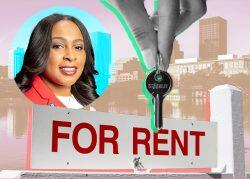After Kingston showed rent stabilization was possible upstate, activists are trying to get other upstate cities to follow suit.
Kingston’s rent control precedent has spurred similar efforts in five other localities, Next City reported. The first step in the process is for the government to conduct a vacancy survey; state law permits rent stabilization for older rental buildings if a housing emergency is declared, which requires a vacancy rate in those buildings below 5 percent.
“We’ve spoken directly with elected officials that have said the Kingston law provided them momentum and has reignited the conversation around conducting these vacancy studies,” Brahvan Ranga, political director of advocacy group For The Many, told the publication.
Campaigns to conduct vacancy studies are underway in Albany, Buffalo, Newburgh, Syracuse and Rochester.
Read more



The Emergency Tenant Protection Act of 1974 allowed for rent stabilization downstate in pre-1974 buildings with more than six units. The Housing Stability and Tenant Protection Act of 2019 made that provision statewide.
Tenant activists have turned to rent stabilization after their effort to enact good cause eviction laws stalled. A statewide bill did not gain traction this year, and a town-by-town push was short-circuited when a judge found the city of Albany’s good cause statute violated state law. Good cause grants tenants up-to-date on rent the right to a lease renewal while protecting them from increases above a certain threshold.
Rent stabilization tends to limit increases more severely, as it puts them in the hands of a local rent guidelines board. Tenants can also bequeath leases to heirs without landlords having a say.
Backers of rent stabilization expect landlords to fight it, explicitly or surreptitiously. Some suspect landlords will try to game vacancy studies to make it seem like apartments are readily available.
By the same token, housing providers criticized New York City for postponing its most recent survey until units vacated during the pandemic filled up. Once the vacancy rate fell, the city declared the housing emergency had not ended, and rent stabilization was renewed.
Such a fight played out in Rochester, which last year found a 9 percent vacancy rate, well above the limit that allows for rent stabilization. But only 37 percent of landlords responded to the survey, and critics said those with low vacancy were less likely to do so.
The law allows cities to assume 0 percent vacancy for non-responders, but Rochester did not use that methodology. Tenant activists in Rochester are pessimistic that the city will conduct another study anytime soon.
Kingston, however, did assume zero vacancy for properties that did not answer its survey, skewing the numbers in the other direction. The vacancy rate in the Hudson Valley city was found to be only 1.57 percent, clearing the way for rent stabilization.
— Holden Walter-Warner
